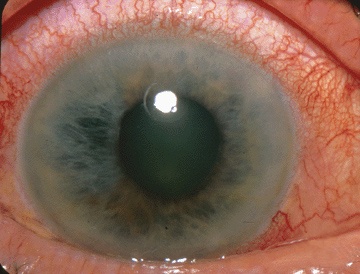This glaucoma polygenic risk score will facilitate the development of a personalised approach for earlier treatment of high-risk individuals
Australian scientists have identified 107 genes that play a role in glaucoma and have developed a genetic test for the disease.
Glaucoma is the leading cause of blindness worldwide, but it’s difficult to diagnose early without expensive, ongoing monitoring.
It can’t be cured, but the disease can be slowed or stopped with a few eye drops.
The genetic test for glaucoma, created by researchers at QIMR Berghofer Medical Research Institute and Flinders University, stratifies people into high and low-risk categories.
Those in the highest risk group reach an absolute risk of glaucoma 10 years earlier than the lowest risk group.
They also have a 15-fold increased chance of advanced glaucoma.
“This glaucoma polygenic risk score will facilitate the development of a personalised approach for earlier treatment of high-risk individuals, with less intensive monitoring and treatment being possible for lower-risk groups,” the study authors wrote in Nature Genetics.
To develop this genetic test, the research team did a multivariate genome-wide association study using tens of thousands of optic nerve photographs.
The team identified 107 genes associated with glaucoma, 49 of which were previously unknown.
“Our study found that by analysing DNA collected from saliva or blood, we could determine how likely a person was to develop the disease,” Associate Professor Stuart MacGregor, the head of QIMR Berghofer’s Statistical Genetics Group and the senior author on the paper, said.
“Importantly, unlike existing eye health checks that are based on eye pressure or optic nerve damage, the genetic test can be done before damage begins so regular screening can be put in place.
“Having a high risk score doesn’t mean you will definitely get glaucoma, but knowing you could be at future risk allows people to take the necessary precautions.”
The research team is now calling for people to sign up to their Genetics of Glaucoma Study to help them find more genes involved in the disease.
Nature Genetics 2020, 20 January


